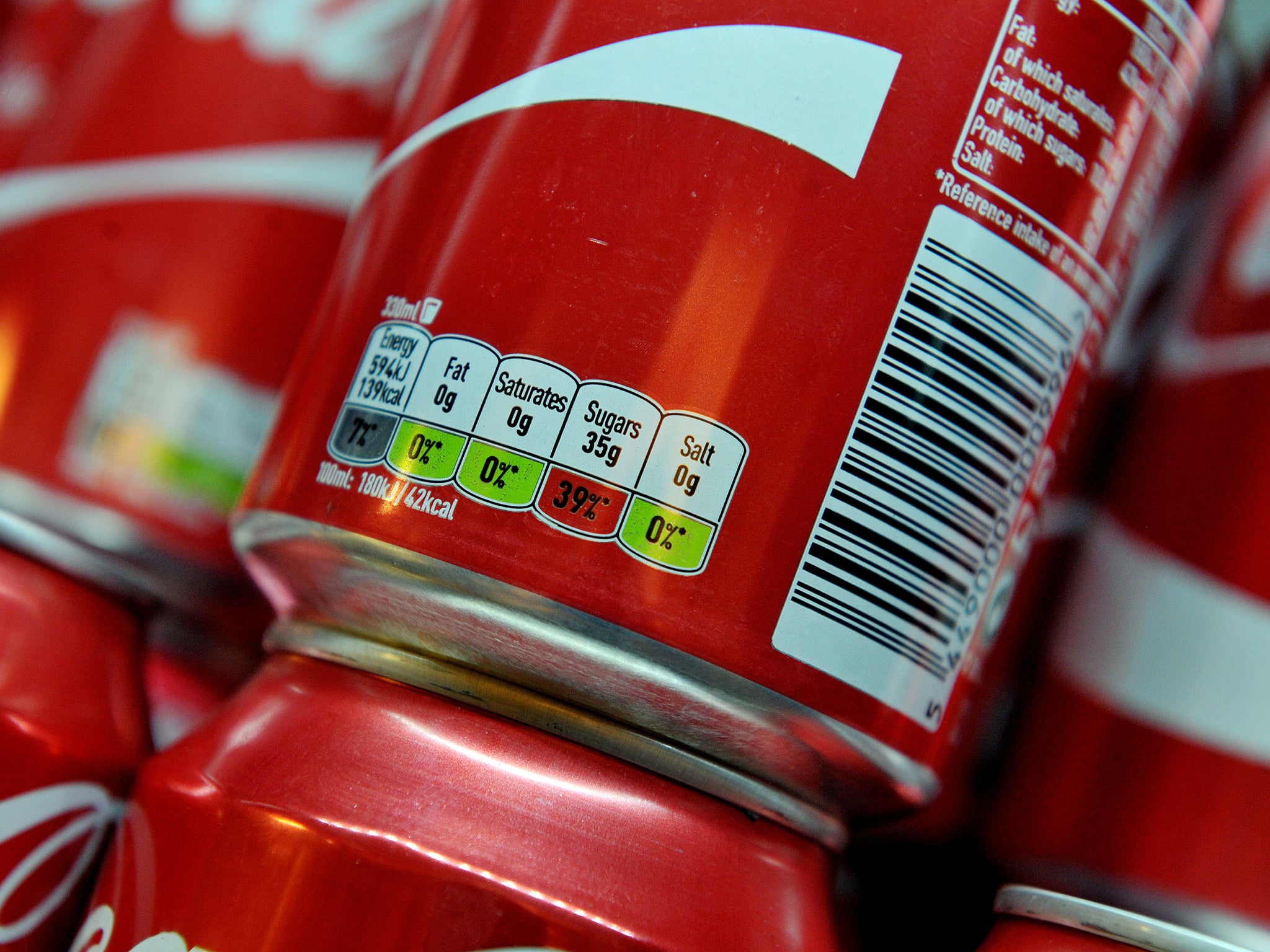Will the sugar tax stop children having fizzy drinks and will it really make Britain less fat?
The Big Question: Kashmira Gander and Charlie Cooper explain what you need to know about the new tax

Why are we asking this now?
George Osborne announced in the Budget that Britain will become one of the first countries in the world to launch a tax on sugary drinks in a bid to tackle childhood obesity and raise funds to invest in school sport.
Is the sugar levy really a 'tax'? Does it mean soft drinks will cost more?
Probably. The Government has targeted the levy at drinks companies, not consumers. It wants manufacturers to take it as an incentive to cut the amount of sugar in drinks – but there is nothing to stop companies simply raising their prices to pay for it – in fact the Office for Budget Responsibility expects them to do just that.
The amounts of sugar in food and drink
Show all 6How much more will sugary drinks cost?
This will depend upon how much sugar they have in them when the tax comes in – drinks companies may cut sugar quantities in preparation before the tax takes effect in 2018. Drinks with 5g sugar per 100ml will incur an 18p per litre levy and drinks with 8g or more per 100ml will incur a 24p per litre levy. So, considering that soft-drink cans contain 330ml of liquid, drinks in the upper band could be 8p more expensive per can, a small bottle could be 12p more and a 1.75-litre bottles could cost around 40p more.
Is it certain that higher costs will lead to people drinking fewer sugary drinks?
Evidence from other countries that have tried a sugar tax suggest it does have an impact. In Mexico a tax led to a 6 per cent drop in purchases. Research by Diabetes UK, meanwhile, found that 43 per cent of people in the UK would buy fewer soft drinks if the price rose by 20 per cent. That is slightly more than is likely under the current plan, but indicates that there should be some impact on sugar consumption.
Which sugary drinks will be included?
Any drinks with more than 5g of sugar per 100ml – excluding natural fruit juices with no added sugar, and milk-based drinks. The most popular beverages – Coca-Cola, Pepsi, Fanta, and extra-sugary fruit drinks for young children – would all be affected. As would some less likely suspects if the tax were introduced today – such as Schweppes Indian Tonic Water, which has 5.1g of sugar per 100ml.
Didn’t the Government say it didn’t want to introduce a sugar tax?
David Cameron has never ruled it out, nor has the Health Secretary Jeremy Hunt. But it seemed likely the idea had been scrapped when the Government’s long-awaited Childhood Obesity Strategy was delayed. It is now due in the summer.
What do the experts say?
Most public health researchers are firmly in favour of the sugar tax. The Government’s official advisory body, Public Health England, has recommended such measures in the past and yesterday welcomed the announcement as “fabulous news for children and families in helping them to cut back on sugar”. The Royal Society for Public Health called the announcement “a real step in the right direction”.
And what about the soft drinks industry?
It is less pleased, and claims that many companies were voluntarily reducing sugar levels already – more so than in other areas of the food and drink industry. It is now faced with a choice between cutting the sugar levels in its drinks and thus avoiding the tax, or raising its prices to cover the costs. The British Soft Drinks Association branded the tax “absurd”.
Subscribe to Independent Premium to bookmark this article
Want to bookmark your favourite articles and stories to read or reference later? Start your Independent Premium subscription today.

Join our commenting forum
Join thought-provoking conversations, follow other Independent readers and see their replies